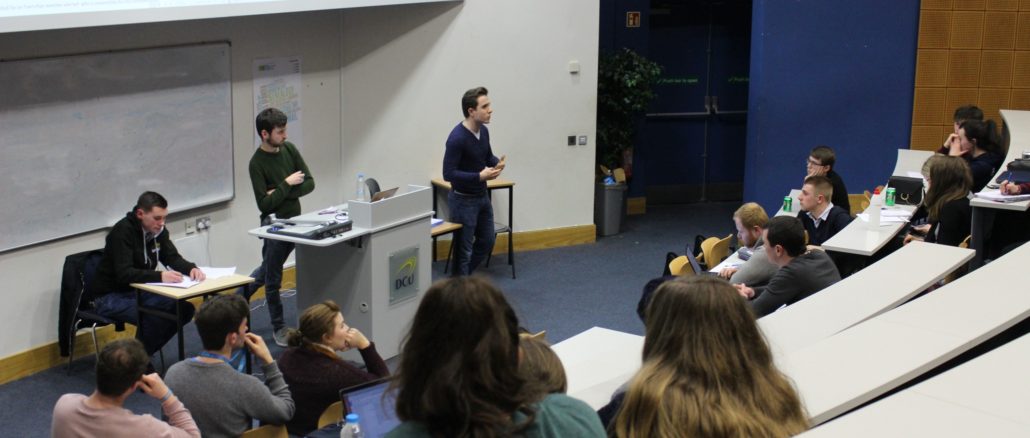
[dropcap]A[/dropcap] referendum to amend the DCU Students’ Union Constitution is set to take place following the Class Representative Council voting in favour of the suggested changes within the document.
Chaired by First Year Officer Bryan Mulry, the Constitutional Review Committee, comprising of 13 members, was elected at the last CRC of semester one to overlook and modify the DCUSU constitution.
This occurred as a result of class representatives voting against having a referendum on constitutional amendments last semester. Class reps voiced concern that the Executive should not be allowed to call a referendum without consulting the council.
The committee met six times and presented the revised copy of the Constitution to CRC last Wednesday.
According to Mulry, the new Constitution deals with three things; “Representation, clarity and efficiency.”
A number of amendments within the Constitution could not be agreed to pass amongst the Committee and instead were brought to a vote at CRC. These, along with the changes decided by the Committee will be brought to the DCU student body to pass during the referendum.
Class reps at CRC voted that Class Reps are now elected in line with the number of people in their class. The new amendment states that “the number of Class Representatives elected per class shall be in line with the number of students in their class.” Every class of up to 75 students will have two reps. For every additional 75 students another class rep will be allocated.
“The more students in the Class, the more representation you have. This means that BA with 426 people will now have more Representation than Global Business Germany with 8 people,” Mulry explained.
Following the debates surrounding the SU’s power to call a referendum, the question was brought to CRC. After a heated debate amongst the council, it was ultimately voted to amend the constitution to clarify that the SU may not hold the power to call a referendum without first consulting CRC.
CRC also voted to retain the position of the First Year Officer on the Executive.
The new Constitution “also clarifies things and makes things more accessible. There is now a clarity on the system for removing a Class Rep, what happens if a Sabat steps down and the position of the Returning Officer,” Mulry said.
“We didn’t want there to be any ambiguity in the document, which was the main cause of the emergency CRC and the drama that unfolded last semester.”
“This constitution cleans up the work done by the last committee and creates a DCUSU that represents the New DCU, with more students, more campuses and a wider range of problems to be dealt with,” he said.
Postgraduate Officer to be retained
The position of Postgraduate Officer will be retained as an Executive position under the new constitution, despite being removed in the draft constitution presented to CRC in semester one.
The draft constitution sought to remove the position of postgraduate officer in favour of amalgamating it with the sabbatical position, Education and Placement. It was argued that this move would increase representation for postgraduates as the new position would be full time, while the Postgraduate Officer is a part-time member.
This was heavily criticised by current Postgraduate Officer, Allan Stevenson, who said the decision would be “completely and utterly detrimental” to postgraduate representation.
He argued that as there are approximately 13,000 undergraduates and just 3,000 postgraduates in DCU, a postgraduate would likely never be elected to the sabbatical role. Postgraduates argued that they could not be adequately represented or understood by someone who is not themselves a postgraduate.
As well as the retention of Postgraduate Officer as a voting member of the Executive, plans are in place to appoint Postgraduate Faculty Assistants, who will act as points of contact for postgrads in each faculty.
According to Stevenson, this initiative will increase postgraduate representation, as “it will be easier for them to talk to someone in their own faculty about any problems, issues or suggestions they may have and the assistants will be able to inform the Postgraduate Officer of any issues that need to be raised at University level.”
“The Postgraduate Assistants would also be in contact with the faculty reps with any issues that concern their specific faculty,” he said.
Hayley Halpin and Rebecca Lumley
Image Credit: Rebecca Lumley



